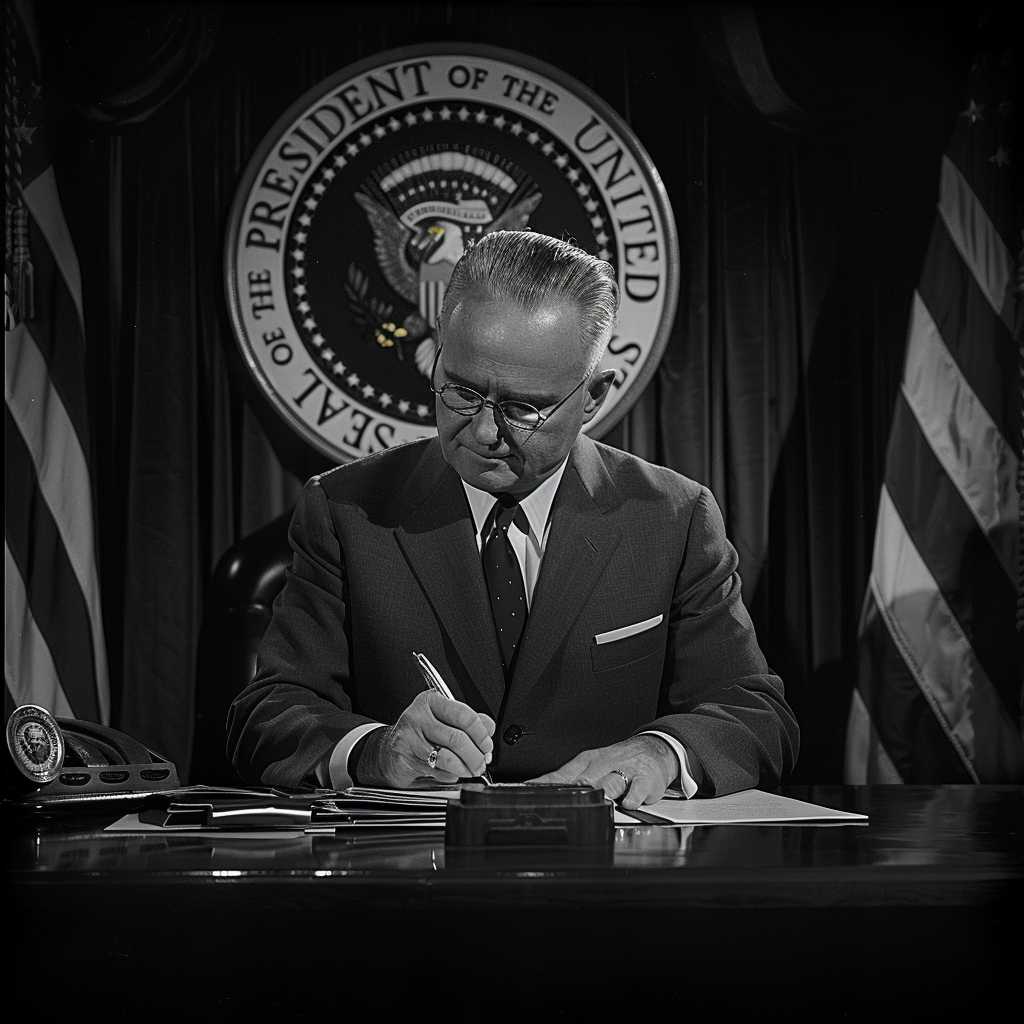### Harry Truman: The 33rd President of the United States – A Comprehensive Overview
Harry S. Truman served as the 33rd President of the United States, ascending to presidency after Franklin D. Roosevelt’s death in 1945 and then winning a full term in 1948. His presidency was marked by significant events in world history including the final stages of World War II, the beginning of the Cold War, and notable domestic policy decisions.
Early Life and Political Rise
Harry S. Truman was born on May 8, 1884, in Lamar, Missouri. He grew up on a farm and his early life was characterized by rural Midwestern values. Before embarking on a political career, Truman worked various jobs including farming and running a haberdashery business.
Truman’s political career began in earnest when he was elected as a judge of the Jackson County Court in 1922. However, his rise to national prominence came after he was elected United States Senator from Missouri in 1934 during the Great Depression. His tenure in the Senate is perhaps best noted for his chairmanship of the Truman Committee, which investigated wasteful spending in defense contracts during WWII.
Ascension to Presidency
When Franklin D. Roosevelt sought his fourth term in office in 1944, he chose Truman as his Vice Presidential candidate. Upon Roosevelt’s death on April 12, 1945, Truman assumed the presidency during a crucial period of World War II.
Presidential Decisions During World War II
Inheriting a nation at war, one of his earliest and most significant decisions was authorizing the use of atomic bombs against Japan in August 1945 – an act intended to bring an end to WWII swiftly but which also ignited ethical debates that endure today.
After Japan’s surrender, Truman oversaw the conclusion of WWII and set to work on post-war recovery and security strategies. He played a pivotal role in founding the United Nations and supported the formation of NATO to counteract Soviet geopolitical expansion.
Domestic Policy Achievements
*
Under Truman’s leadership, several key domestic policies were implemented. The Fair Deal, an ambitious set of proposals that extended Roosevelt’s New Deal policies, called for improving social welfare programs, civil rights initiatives, and economic reforms although it faced significant opposition from Congress.
On matters of civil rights, Truman made pivotal decisions by desegregating the armed forces and advocating for legislation against lynching and for voting rights—though many of his proposals were blocked in Congress.
Foreign Policy Initiatives: The Cold War and Beyond
Post-war foreign policy under Truman became dominated by Cold War politics. His doctrines shaped the U.S approach toward containment of Soviet influence with actions such as the Marshall Plan for European recovery, and interventions in Greece and Turkey to prevent communist takeovers.
The Korean War broke out in 1950, testing Truman’s foreign policy further as he sent American troops under UN auspices to defend South Korea without Congressional approval, setting a contentious precedent for future conflicts.
Legacy and Impact
Truman’s imprint on history is seen both through decisive action during critical wartime moments and groundbreaking moves towards civil rights reform at home. Yet he remains a complex figure scrutinized for controversial decisions like the atomic bombings of Hiroshima and Nagasaki.
His policies laid down frameworks that would shape U.S international relations for decades while his domestic agenda faced varying degrees of reception and implementation challenges,.
